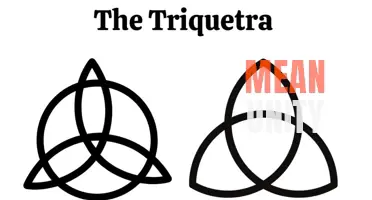
Fish have long held a special place in human culture and symbolism. They are often seen as creatures of mystery and grace, gliding effortlessly through the water with their sleek bodies and shimmering scales. In many ancient cultures, fish were considered to be symbols of fertility and abundance, as they were often associated with the life-giving properties of water. Additionally, fish have been seen as symbols of transformation and spiritual growth, as they undergo a metamorphosis from egg to adult and are capable of navigating through different realms - both above and below the surface of the water. Overall, fish symbolism speaks to the profound connection between humans and the natural world, reminding us of the wonder and beauty that can be found in the depths of our own existence.
What You'll Learn
- What is the symbolic meaning of fish in various cultures and religions?
- How do different cultures interpret the fish as a spiritual symbol?
- In ancient mythology, what role did fish play as symbolic creatures?
- What does the fish symbolize in Christianity and why is it a significant symbol within the religion?
- How does the fish symbol relate to the concept of fertility and abundance in different cultures?

What is the symbolic meaning of fish in various cultures and religions?
The symbolism of fish is deeply rooted in various cultures and religions across the world. In many traditions, fish carry significant symbolic meaning, representing a wide range of ideas and concepts. Let's explore the symbolic meaning of fish in several cultures and religions.
In Christianity, the fish holds great importance. In the Bible, several stories involve fish, such as the miracle of loaves and fishes and the calling of Jesus' disciples, who were fishermen. The fish is seen as a symbol of abundance and fertility, representing the multiplying of resources and disciples, respectively. Additionally, the fish symbol became a secret sign for early Christians during times of persecution, serving as a way to identify one another.
In Chinese culture, the fish is associated with prosperity and wealth. The Mandarin word for fish, "yu," sounds like the word for abundance, making fish an auspicious symbol. It is often depicted swimming upwards, symbolizing progress and success. The Chinese New Year celebration also includes the tradition of displaying fish ornaments or paintings to attract good fortune and wealth.
In Hinduism, the fish holds various symbolic meanings. In one of the oldest Hindu texts, the Matsya Purana, Lord Vishnu takes the form of a fish to save the world from a flood. The fish also represents knowledge and transcendence, as it can swim in the vast ocean, a symbol of the infinite cosmic waters. Additionally, fish are associated with the concept of reincarnation and the cyclical nature of life.
In Native American cultures, fish often represent adaptability and transformation. Fish are believed to possess the ability to navigate through various ecosystems, adapting to different environments. They are seen as symbols of resilience and the ability to flow with life's challenges. Additionally, in some Native American creation stories, fish are seen as ancestors or elders who provide guidance and wisdom.
In Japanese culture, the Koi fish holds tremendous symbolic meaning. The Koi fish is associated with strength, courage, and perseverance. It is believed that Koi fish can swim against strong currents and even jump over waterfalls, representing determination and overcoming obstacles. The Koi fish also symbolizes good fortune, love, and prosperity.
In Islam, fish are considered pure animals and are allowed to be consumed by Muslims. The fish holds symbolic meaning in Islamic art, often represented as decorative motifs and designs. A common interpretation is that fish represent the spiritual journey and the soul's quest for enlightenment. Fish are also associated with abundance and sustenance.
In conclusion, the symbolic meaning of fish varies across cultures and religions. It can represent abundance, fertility, wealth, prosperity, adaptability, transformation, strength, courage, and spirituality. Fish symbolize different concepts and ideals and play an essential role in the cultural and religious beliefs of various communities around the world. So, the next time you come across an image or symbol of a fish, remember its diverse and profound symbolic significance.
Understanding the Meaning Behind the Buddhist Symbol
You may want to see also

How do different cultures interpret the fish as a spiritual symbol?
The fish has long been seen as a spiritual symbol in various cultures around the world. While the interpretations may vary, the fish is often associated with themes of abundance, fertility, transformation, and spiritual enlightenment. Let's explore how different cultures interpret the fish as a spiritual symbol.
In ancient Egypt, the fish was associated with the Goddess Isis, who was believed to have brought civilization and fertility to the Nile valley. The fish symbolized the life-giving properties of water and the abundance it provided. The fish was also closely linked to the worship of the god Osiris, who was often depicted as a fish swimming in the primordial waters, representing the cycle of life and death.
In Christianity, the fish became an important symbol early in the religion's history. During the Roman Empire, when Christianity was still heavily persecuted, Christians used the fish symbol as a secret code to identify themselves to one another. The Greek word for fish, "ichthys," is an acronym for "Jesus Christ, Son of God, Savior." This symbol helped Christians identify each other during times of persecution.
In Hinduism, the fish is associated with the deity Vishnu, who is often depicted with a fish-shaped vehicle known as a "matsya." Vishnu, as the preserver and protector of the universe, is associated with water and the life-giving properties it brings. The fish symbolizes Vishnu's ability to navigate the cosmic ocean and maintain balance and order in the universe.
In Native American cultures, the fish is often seen as a symbol of transformation and renewal. The fish's ability to navigate between different realms, such as water and air, is seen as a spiritual journey. Many Native American tribes believe that the fish can guide individuals on their own spiritual paths, helping them navigate life's challenges and find spiritual enlightenment.
In Chinese culture, the fish is seen as a symbol of abundance and good fortune. The Chinese word for fish, "yu," sounds similar to the word for abundance or surplus. As a result, fish are often depicted in Chinese artwork and decorations to bring luck and prosperity. The carp, in particular, is seen as a symbol of perseverance and strength, as it swims against the current to reach its destination.
Overall, the fish has a rich and diverse symbolism in different cultures around the world. From its association with abundance and fertility to its representation of transformation and spiritual enlightenment, the fish is a powerful symbol that resonates with many people on a spiritual level. Whether it's seen as a sacred deity, a secret code, or a guide on life's journey, the fish continues to inspire and fascinate people across cultures and time.
The Deep and Mysterious Meaning Behind Skull Symbolism
You may want to see also

In ancient mythology, what role did fish play as symbolic creatures?
In ancient mythology, fish have played various roles as symbolic creatures across different cultures and civilizations. Throughout history, fish have been associated with various symbolic meanings, representing power, fertility, transformation, and good fortune. These symbolic associations can be found in mythologies from ancient Egypt, Mesopotamia, Greece, and other ancient civilizations.
In ancient Egypt, fish, especially the Nile Perch, held a significant symbolic role. The Nile River and its abundance of fish were vital to the survival of the ancient Egyptians, providing a source of food and economic stability. As a result, fish were highly valued and associated with fertility and prosperity. The Nile Perch was often depicted in ancient Egyptian art and tombs, symbolizing abundance and the continuation of life.
In Mesopotamian mythology, the fish was associated with the god Ea, the god of wisdom and water. It was believed that Ea inhabited the depths of the ocean and had the ability to transform into a fish. The fish symbolized knowledge, wisdom, and the ability to navigate the unknown waters of life. It was also believed that Ea used the fish to send messages and communicate with humans.
In Greek mythology, fish were associated with the goddess Aphrodite, the goddess of love, beauty, and fertility. According to the myth, Aphrodite and her son Eros transformed themselves into fish to escape the titan Typhon. This tale symbolizes the ability of fish to adapt and survive in challenging situations. Fish also symbolized abundance and prosperity in Greek mythology, often depicted in scenes with Poseidon, the god of the sea.
Fish were also associated with Christianity, particularly in the stories of Jesus Christ. In the Bible, there are several instances where fish played a symbolic role. For example, Jesus is said to have fed thousands of people with just a few fish, symbolizing his power and ability to provide for his followers. Fish were also a symbol of the early Christian community, as many of Jesus' disciples were fishermen.
Overall, fish have been symbolic creatures in ancient mythology, representing different aspects of life such as fertility, transformation, power, and abundance. Whether in ancient Egypt, Mesopotamia, Greece, or Christianity, fish have played a significant role in cultural and religious beliefs, reflecting their importance in human societies throughout history.
Understanding the Symbols in Dead by Daylight: A Guide to their Meanings
You may want to see also

What does the fish symbolize in Christianity and why is it a significant symbol within the religion?
The fish symbol has been one of the oldest and most recognizable symbols of Christianity. It holds great significance within the religion, representing various aspects of the faith and its followers. In this article, we will explore the symbol of the fish in Christianity and understand why it is considered to be so significant.
The fish symbol, also known as the Ichthys or Ichthus symbol, consists of two intersecting arcs resembling the shape of a fish. It has its origins in the early days of Christianity when followers of the faith faced persecution. During that time, Christians used the fish symbol as a secret way to identify themselves to each other and to differentiate themselves from non-believers.
The fish symbol holds multiple meanings within Christianity. Firstly, it symbolizes Jesus Christ himself. The Greek word for fish is "Ichthys," which is also an acronym in Greek for "Jesus Christ, Son of God, Savior." The fish symbol, therefore, is a representation of Jesus as the central figure of the Christian faith.
Additionally, the fish symbol is associated with various stories and miracles from the Bible. In the New Testament, Jesus performed the miracle of feeding the 5,000 by multiplying a few fishes and loaves of bread. This miracle is often depicted using the fish symbol. Similarly, Jesus called his disciples "fishers of men," symbolizing their role in spreading the message of Christianity and drawing people towards it.
Moreover, the fish symbol is also linked to the biblical story of Jonah and the Whale. According to the story, Jonah was swallowed by a giant fish and eventually spit out onto dry land. This event is seen as a metaphor for rebirth and salvation, signifying the transformation and renewal that comes through faith in God.
The fish symbol is also closely associated with baptism, one of the sacraments in Christianity. As baptism involves the immersion in water, which is the natural habitat of fish, the symbol is a powerful representation of the spiritual cleansing and rebirth that takes place during this sacrament.
Additionally, the fish symbol has been used as a sign of hope, resilience, and perseverance throughout Christian history. Fishermen, who often faced dangerous and unpredictable conditions at sea, would look to the fish symbol as a source of protection and guidance. It served as a reminder to stay faithful and trust in God's providence, even in the face of adversity.
In conclusion, the fish symbol in Christianity holds significant meaning and symbolism. It represents Jesus Christ, the central figure of the faith, and is associated with various stories and miracles from the Bible. The fish symbol encompasses themes of rebirth, salvation, and hope, making it a powerful and enduring symbol within the religion.
Demystifying the Symbols: Understanding the Meaning of Bestway Sand Filter Symbols
You may want to see also

How does the fish symbol relate to the concept of fertility and abundance in different cultures?
The fish symbol has been associated with fertility and abundance in various cultures throughout history. This symbol holds a significant meaning and has been interpreted differently in different regions and religions.
In ancient Mediterranean civilizations, the fish was recognized as a symbol of fertility and abundance. The abundance of fish in the sea and rivers provided sustenance for the people, making it a natural representation of fertility. The fish symbol was often used to represent the goddess of fertility and agriculture, such as the Roman goddess Venus and the Greek goddess Aphrodite. These goddesses were often depicted holding or accompanied by fish as a symbol of their connection to fertility and abundance.
In Christianity, the fish symbol holds a symbolic meaning related to fertility and abundance. The fish was commonly used as a secret symbol among early Christians to identify themselves. This symbol originated from the Greek word "Ichthys," which means fish. It was used as an acronym for "Iesous Christos Theou Yios Soter," which means "Jesus Christ, Son of God, Savior" in Greek. The fish symbol served as a representation of fertility and abundance through its connection to Jesus' teachings of abundance and his miracles involving fish, such as the feeding of the multitude with a few fish and loaves of bread.
In Chinese culture, the fish symbolizes abundance and prosperity. The Chinese word for fish, "Yu," sounds like the word for abundance or surplus. As a result, fish are often seen as a symbol of good luck and are frequently used in traditional Chinese New Year decorations. The fish also symbolizes fertility in Chinese culture, as it is believed that fish reproduce quickly and abundantly, representing a household's desire for a large and prosperous family.
In Hinduism, the fish symbolizes fertility and abundance specifically in relation to water. The fish is considered a sacred animal associated with water deities, such as Varuna, the god of the ocean, and Matsya, the fish avatar of Lord Vishnu. Fish are often depicted in Hindu temples and artwork as a symbol of fertility and abundance provided by water, which is essential for agricultural, domestic, and spiritual purposes.
In conclusion, the fish symbol has been associated with fertility and abundance in various cultures. Whether it is through its connection to the goddesses of fertility and agriculture, its symbolic representation in Christianity, its association with prosperity and good luck in Chinese culture, or its connection to water deities in Hinduism, the fish symbol consistently represents the desire for abundance and prosperity in different cultural and religious contexts.
The Deep and Powerful Meanings Behind Native American Hand Symbols
You may want to see also
Frequently asked questions
In many cultures, the fish is a symbol of abundance, fertility, and prosperity. In Christianity, the fish is associated with Jesus Christ and represents faith and spiritual nourishment. In Chinese culture, the fish symbolizes wealth and success, and is often associated with the Chinese New Year. In Native American and Native Hawaiian cultures, the fish is seen as a symbol of strength, adaptability, and transformation.
Dreaming of a fish can have various symbolic meanings. It is often associated with emotions, creativity, and intuition. Swimming fish in dreams can represent the flow of emotions or the unconscious mind. A fish jumping out of water may symbolize a sudden burst of creativity or a desire for freedom. Additionally, catching or eating a fish in a dream can symbolize a need for nourishment or fulfillment in waking life.
In spiritual symbolism, the fish is often associated with spirituality, wisdom, and divine guidance. The fish is believed to have a connection to the spiritual realms and is seen as a symbol of intuition and the ability to navigate through life's challenges. It can also represent the balance between our conscious and unconscious selves, reminding us to trust our instincts and inner wisdom.
The fish is often associated with rebirth and transformation due to its ability to adapt and survive in different environments. It is a creature that navigates through various depths and currents, symbolizing our own journeys through life. The fish's ability to swim against the current also represents strength and perseverance in the face of challenges. In ancient mythologies, fish are often depicted as guides to the underworld, representing the cycles of death and rebirth. This symbolism is often associated with the astrological sign Pisces, which is represented by two fish swimming in opposite directions.







